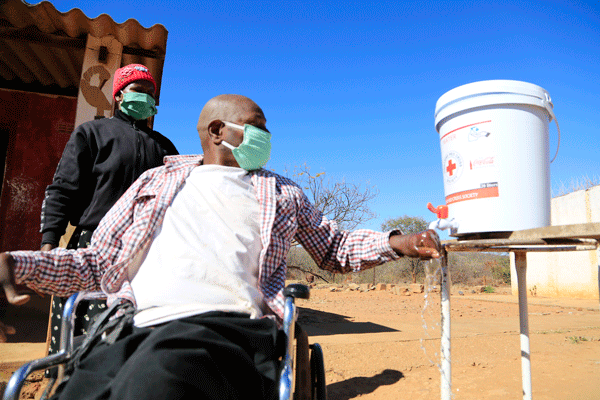
social commentary:with Moses Mugugunyeki
Persons with disabilities generally have more health-care needs than others, hence the need for the elimination of obstacles and barriers to accessibility in health-care facilities, especially during this time of the Covid-19 pandemic.
In an interview with Standard Style, Jairos Jiri Old People’s Home Silobela centre manager Agnes Mapako said the advent of Covid-19 increases the vulnerability of persons with disabilities.
“We have been receiving a lot of support from the government and well-wishers since the advent of the Covid-19 pandemic,” she said.
“However, from experience we have realised that people with disabilities are susceptible to disease outbreaks due to a number factors, chief being lack of access to health care facilities or simply failing to do basic things like washing their hands and putting on masks.”
Her sentiments buttress UN secretary-general António Guterres’s statement at the launch of the Policy Brief on Persons with Disabilities and Covid-19 in May.
“We must guarantee the equal rights of people with disabilities to access healthcare and lifesaving procedures during the pandemic,” Guterres said then.
According to the International Labour Organisation, persons with disabilities, 15% of the world’s population, face marginalisation in social, economic and health terms, as well as limitations by public services to reach them.
- Chamisa under fire over US$120K donation
- Mavhunga puts DeMbare into Chibuku quarterfinals
- Pension funds bet on Cabora Bassa oilfields
- Councils defy govt fire tender directive
Keep Reading
The marginalisation increases the threat to lives and livelihoods that the Covid-19 crisis poses. In response to the crisis, an approach that is inclusive of persons with disabilities is essential to mitigate the negative effects of the crisis and ensure a sustainable recovery.
Mapako welcomed a recent donation of personal protective equipment the centre received from the Zimbabwe Red Cross Society (ZRCS), courtesy of the Coca Cola Foundation.
The centre was among 35 old people’s homes across the country that benefitted from ZRCS’s US$100 000 donation from the Coca Cola Foundation.
“Just recently we received buckets of water, disinfectant chemicals, hand sanitisers, face masks and food from the Red Cross. These came at the right time and we have since strategically positioned them where the inmates access them with ease,” Mapako said.
“Most of our inmates are old and either dumb, deaf or blind while others have physical disabilities which makes it difficult to access health facilities. With this Red Cross donation, we have put the items at their door steps.”
“ZRCS received funding from the Coca Cola Foundation towards the ongoing Covid-19 response efforts. Through this partnership, we are contributing towards the reduction of mortality and morbidity from Covid-19 in Zimbabwe,” said ZRCS head of communications and corporate affairs Stambuli Kim.
“To increase Covid-19 awareness by rolling out risk communication and community engagement to prevent further spread of the disease from among the vulnerable population, we are distributing sanitisers, handwashing buckets and liquid soap to 35 old people’s homes.
“The intention is to ensure protection of the elderly population who are among the vulnerable groups often with comorbid conditions.”
Mapako, said the old people’s centre, home to 22 inmates, was facing a plethora of challenges.
“As you can see this old people’s home’s infrastructure is obsolete and a lot needs to be done to spruce it up,” she said.
“We have a garden, but our biggest challenge is that we use an electric powered borehole which makes it difficult for us as we cannot afford electricity charges. A solar-powered pump would work for us.
“The centre is in dire need of sugar. Our old people need to keep warm and we can only do that if we make tea for them. Yes, in terms of clothes and other stuff we might be okay, but sugar is the biggest challenge.”
One of the inmates Japhet Peter Sibanda, who hails from Tsholotsho, said to him he has found a home.
“I came here in 1997 when I was moved from the Jairos Jiri Centre in Bulawayo where I had stayed since 1985. I am happy to be alive and I want to thank God and the caregivers here,” said Sibanda, who is blind.











